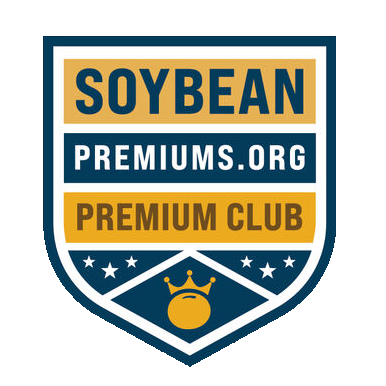Copyright © 2019 SoybeanPremiums.org All Rights Reserved
Farmer Resources
Programs
Find a Premium Program nearest you today. Start by choosing your desired state to filter the Premium Soybean Programs.
This program information is provided by the companies listed here. ISA does not independently verify or vouch for the accuracy of this information. Questions about a program should be directed to the company rather than ISA.
This program information is provided by the companies listed here. ISA does not independently verify or vouch for the accuracy of this information. Questions about a program should be directed to the company rather than ISA.
Specialty Soybeans: Are they Worth it?
Specialty soybeans, while less popular than regular soybeans, have a plethora of uses and demands. There are many different types of specialty soybeans, each with its own strengths. These beans are being developed right now to suit demand from specific markets. Consumers in the United States want to know where their soybeans are grown and reap the health benefits of eating them.
Soybean farmers are focused on boosting revenue and earning a premium while producing a high-quality crop, and specialty soybeans are a great way to achieve that goal. Because specialty soybeans are commonly grown under contract agreements, they can bring in a higher profit. These contract agreements give the grower and the buyer a chance to see eye-to-eye on special requirements and details. As a result of these contract agreements, buyers and growers tend to leave the deal satisfied with the outcome.
Many varieties of soy foods are created using specialty soybeans. Some commonly recognized soy foods in this category include tofu, tempeh, soy sauce, soy milk, and more. These beans are also used to produce healthy foods, meat alternatives, and soy nuts. Non-GMO soybeans are rising in popularity. Consumers are choosing to purchase this variety of soybeans in health food and grocery stores. Non-GMO soybeans have lower seed costs than commercial soybeans, however, this variety requires special herbicides at a higher cost.
Non-GMO soybeans differ in production methods as compared to conventional soybeans. An advantage to this variety, in particular, is lower seed costs. Farmers can save around 50 percent when purchasing non-GMO soybeans. One challenge that comes along with this type of bean is the use of herbicides. Not only are the herbicides required for growth a higher cost, but they are also more tedious to apply. The timing of herbicide applications on non-GMO soybean fields can be hard to control and keep track of. Farmers must be attentive to application times and processes.
Aside from non-GMO soybeans, there has been a rise in demand for specialty soybeans such as high oleic and organic food-grade. These trends are expected to continue, considering the rise in demand for specialty soybeans, especially in health food stores.
High oleic soybeans are a variety of specialty soybeans that were created to produce oil that does not have any trans-fat. They also have less saturated fat and contain the highest amount of monosaturated fat available in soy. As a less fattening soybean oil that can be used in cooking, this oil is meant to meet the needs of health-conscious buyers. These beans are fairly new to the market and are gaining in popularity.
At the end of the day, specialty soybeans may require more planning and care, but the higher premium pays off if a producer is looking to bring in more on-farm revenue without adding additional acres.
By accepting you will be accessing a service provided by a third-party external to https://soybeanpremiums.org/
